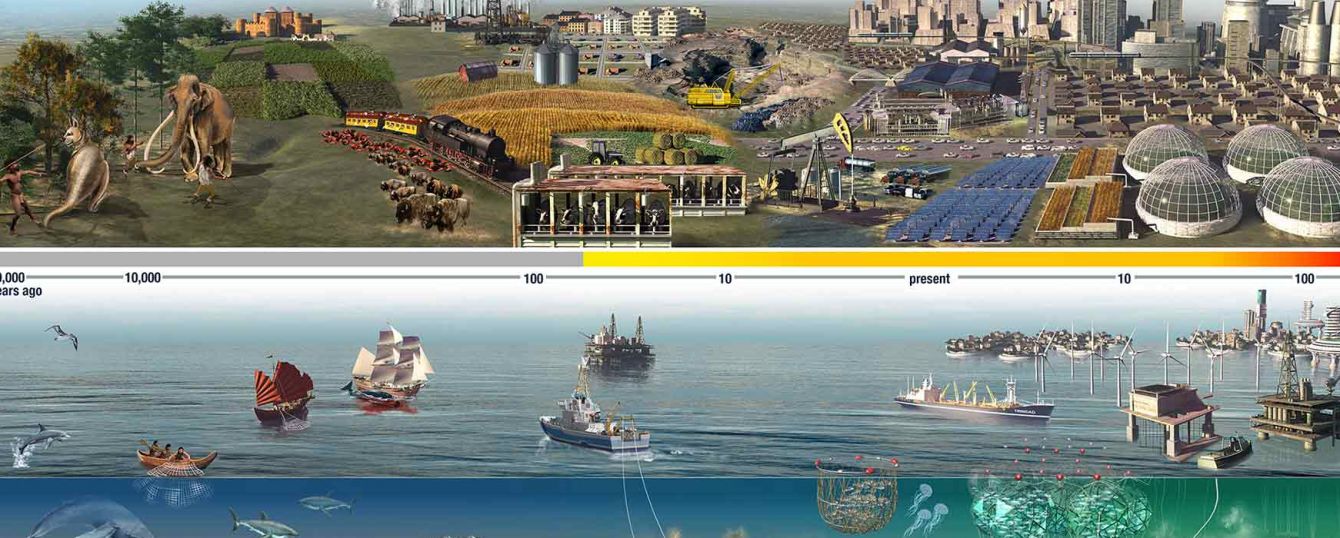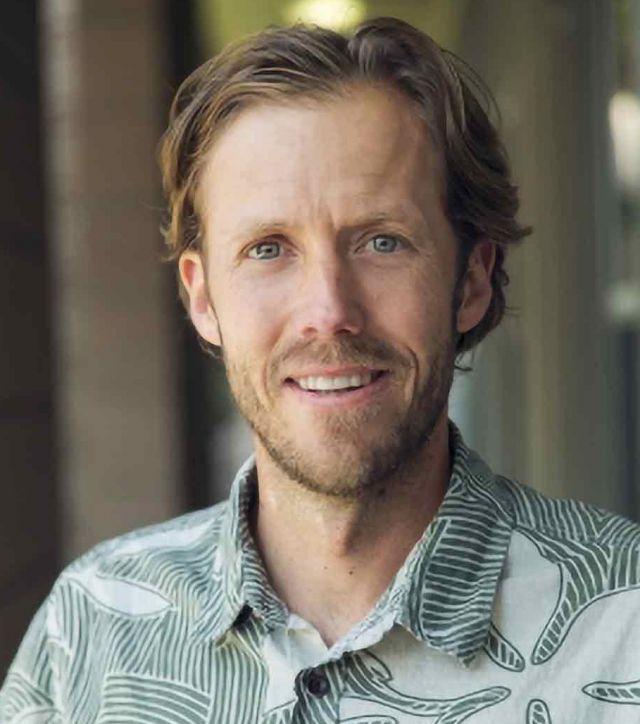Wildlife Loss in Our Oceans
In 2019 Plous Lecture, Douglas McCauley will examine changes humans and technology are bringing to the oceans


By Shelly Leachman
From elephants to monarch butterflies, news stories abound about the decline and even extinction of wildlife on land. But what’s happening in the ocean? What’s the status of whales, sharks and other wildlife on the remaining 71 percent of our planet?
In this year’s Harold J. Plous Lecture at UC Santa Barbara, Plous Award recipient Douglas McCauley, now an associate professor in the Department of Ecology, Evolution, and Marine Biology, will provide a brief history of the ways humans have changed ocean ecosystems and examine how marine science can be used to predict future impacts.
McCauley’s talk, “The Past and Future of Wildlife Loss in Our Oceans,” will begin at 4 p.m. Monday, March 11, in the auditorium of the campus’s Marine Science Institute (MSI). It is free and open to the public.
“The talk will be about how we are changing how we use the oceans, how that is affecting ocean life, and what all of this ocean change means in the end for us,” McCauley said. “I will connect those three threads in the lecture. We’re now in a very historic moment for the ocean — a moment where the decisions that we make in the next few years will shape what becomes of ocean health in the next few centuries.”
Many of those changes, McCauley said, are due to emerging technologies that have enabled us to launch a whole new suite of “tech-powered, human industry in the oceans.” He points out, however, that these technologies also are enabling marine biologists to track and manage this new ocean change in a way that never before seemed possible.
“Are we sitting on the edge of a marine industrial revolution, a period of immense and rapid and transformative change for how we do business in the sea?” he hypothesized. “The data I will share suggests that an industrial revolution is indeed beginning in the oceans and that we can we use some exciting new technologies, like artificial intelligence that listens for whale songs to satellites that spy on illegal fishing, to help make sure this new industry works for the oceans and all of us that depend on the oceans.”
A researcher with MSI, McCauley also is director of the Benioff Ocean Initiative (BOI), a center of applied research at UC Santa Barbara dedicated to using marine science to improve ocean health. BOI links together university researchers, students and global ocean communities in this effort to identify ocean problems and solve them with emerging technologies.
In addition to his work with the Benioff Ocean Initiative, McCauley’s research is as diverse as it is ambitious. Employing satellites to track sharks and improve the design of marine protected areas and investigating the complex flows of energy through ecosystems are among the topics he tackles in his lab.
McCauley completed his Ph.D. at Stanford University and conducted postdoctoral research at Stanford and at UC Berkeley before joining the faculty at UC Santa Barbara. Among his numerous honors and awards for his research are an Alfred P. Sloan Research fellowship in the ocean sciences and an early career fellowship from the Ecological Society of America.
The Harold J. Plous Award is one of the university’s most prestigious faculty honors. It is given annually to an assistant professor from the humanities, social sciences or natural sciences who has shown exceptional achievement in research, teaching and service to the university. Presented by the College of Letters and Science, the award was established in 1957 to honor the memory of Harold J. Plous, an assistant professor of economics.